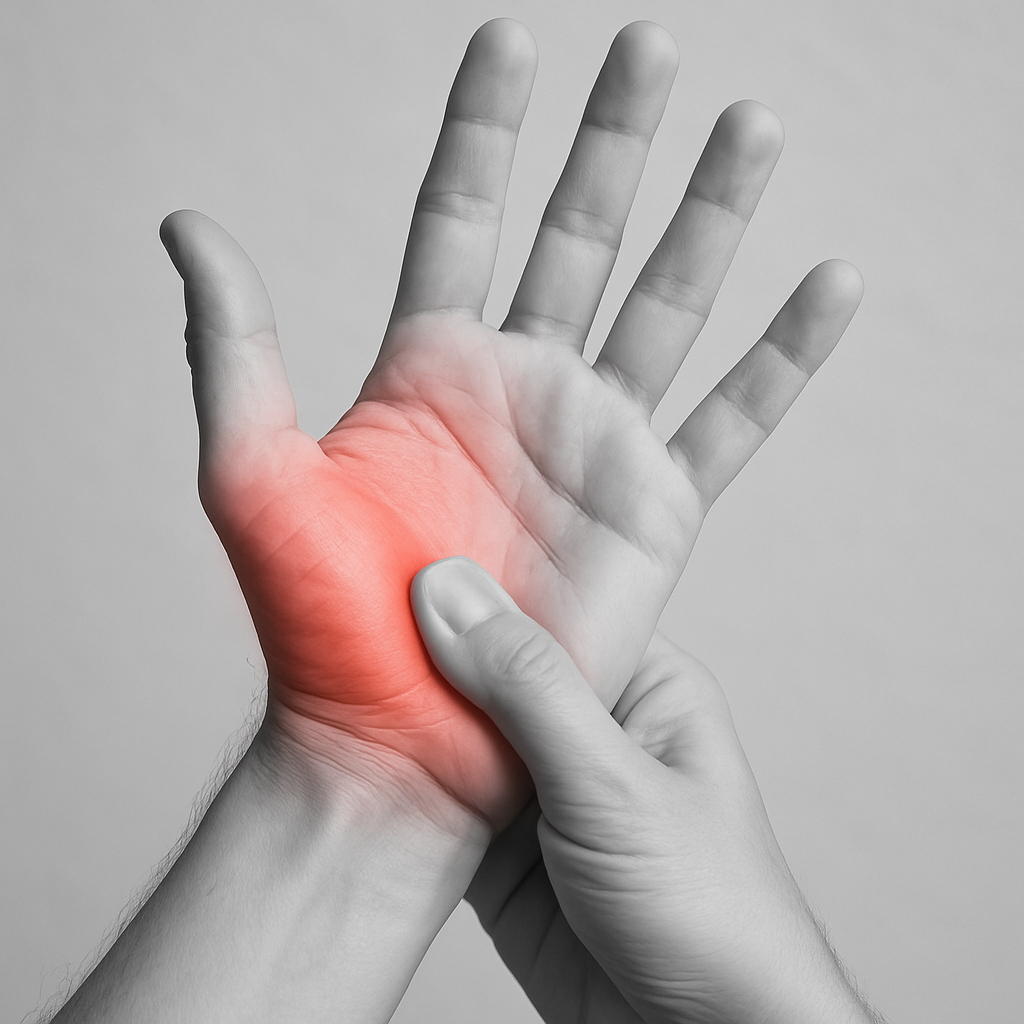Waking up with stiff fingers is frustrating. You want to grip your coffee mug, but your hands don’t cooperate. Simple tasks, such as buttoning a shirt or opening a jar, suddenly feel harder than they should. Finger stiffness can develop gradually or occur after an active day.
So, what’s really behind it? Let’s break down the most common reasons your fingers feel stiff, and what you can do to get relief.
Everyday Causes of Finger Stiffness
Sometimes the problem is simple. If you’ve spent hours gardening, typing, or gripping tools, your fingers may feel sore and tight the next morning. Muscles and tendons around your fingers can become tired, just like your legs after a long walk.
Cold weather is another everyday culprit. Stiff fingers often show up when temperatures drop, especially if you have poor circulation. Think about how hard it feels to bend your fingers after scraping ice off your windshield. That’s not arthritis—it’s just your joints reacting to the cold.
Arthritis and Joint Problems
One of the most well-known finger stiffness is arthritis. Osteoarthritis, the “wear and tear” type, often affects finger joints as we age. It causes the cartilage to wear down, allowing the bones to rub together. This can cause stiffness, swelling, and sometimes pain.
Rheumatoid arthritis works differently. It’s an autoimmune condition where the body attacks its own joints. Morning stiffness is one of the most significant clues. If your fingers feel like wooden sticks for an hour or more each morning, arthritis could be the reason.
Tendon and Ligament Issues
The tendons in your hands act like ropes, pulling your fingers into motion. If they’re inflamed or injured, stiffness follows. “Trigger finger” is a typical example. That’s when a finger locks in a bent position, then suddenly snaps straight. It feels strange and can make daily tasks awkward.
Ligament sprains from sports or even a kitchen slip can also lead to stiffness. A minor injury today can lead to lingering tightness if not properly treated.
Nerve-Related Causes
Sometimes the issue isn’t in the finger joint itself. Nerve problems higher up in the wrist or arm can also create stiffness. Carpal tunnel syndrome is a classic example. Pressure on the median nerve in your wrist can cause tingling, numbness, and stiffness in your fingers.
To learn more about the overlap, here’s a helpful guide on finger stiffness causes. It explains how conditions like carpal tunnel compare with arthritis and other hand problems.
When Finger Stiffness Signals Something Bigger
Not all stiffness is solely due to overuse or cold weather. If your stiffness is accompanied by swelling, warmth, or visible joint changes, it’s time to get checked out. Conditions such as gout, lupus, or psoriatic arthritis can also manifest in your fingers.
Another red flag is stiffness that doesn’t improve with movement. Usually, stiff fingers “loosen up” once you start using them. If yours stay tight for hours, it may point to a chronic condition.
Home Relief Tips That Actually Help
For mild stiffness, small lifestyle changes can make a big difference.
- Warm water soak: Soaking in warm water for a few minutes relaxes stiff joints.
- Gentle stretching: Slowly bend and straighten fingers to improve flexibility.
- Hand massage: Use lotion and massage each finger to improve blood flow.
- Heat packs: Applying gentle heat can help ease stiffness caused by arthritis or cold weather.
- Stay active: Keeping your fingers moving throughout the day prevents stiffness from settling in.
These tips won’t cure an underlying condition, but they can ease daily discomfort.
When to See a Doctor
If stiffness lasts more than a few weeks, don’t ignore it. Doctors can run simple tests to diagnose arthritis, nerve issues, or other underlying causes. Early treatment can make a significant difference, especially for conditions like rheumatoid arthritis.
Think of it like car maintenance. Fixing a slight rattle now prevents bigger repairs later. The same goes for your hands.
How Lifestyle Plays a Role
Your daily habits shape how your joints feel. Poor ergonomics at work, heavy lifting, or repetitive hobbies like knitting can add stress to your fingers. Setting up a better workstation or taking breaks can reduce stiffness over time.
Diet plays a role, too. Inflammatory foods, like processed snacks and sugary drinks, can make arthritis symptoms worse. Adding more fruits, vegetables, and omega-3-rich fish helps reduce stiffness.
Final Thoughts
Finger stiffness isn’t just an “old person problem.” It can happen to anyone, at any age, depending on lifestyle, work, and health conditions. From simple overuse to arthritis or nerve compression, the causes vary widely.
The good news? Stiff fingers don’t have to slow you down. With the right mix of awareness, home care, and medical guidance when needed, you can maintain strong and flexible hands.
Your fingers play a role in almost every part of daily life. Taking care of them now means fewer struggles later—and more freedom to do the things you enjoy.





Comments